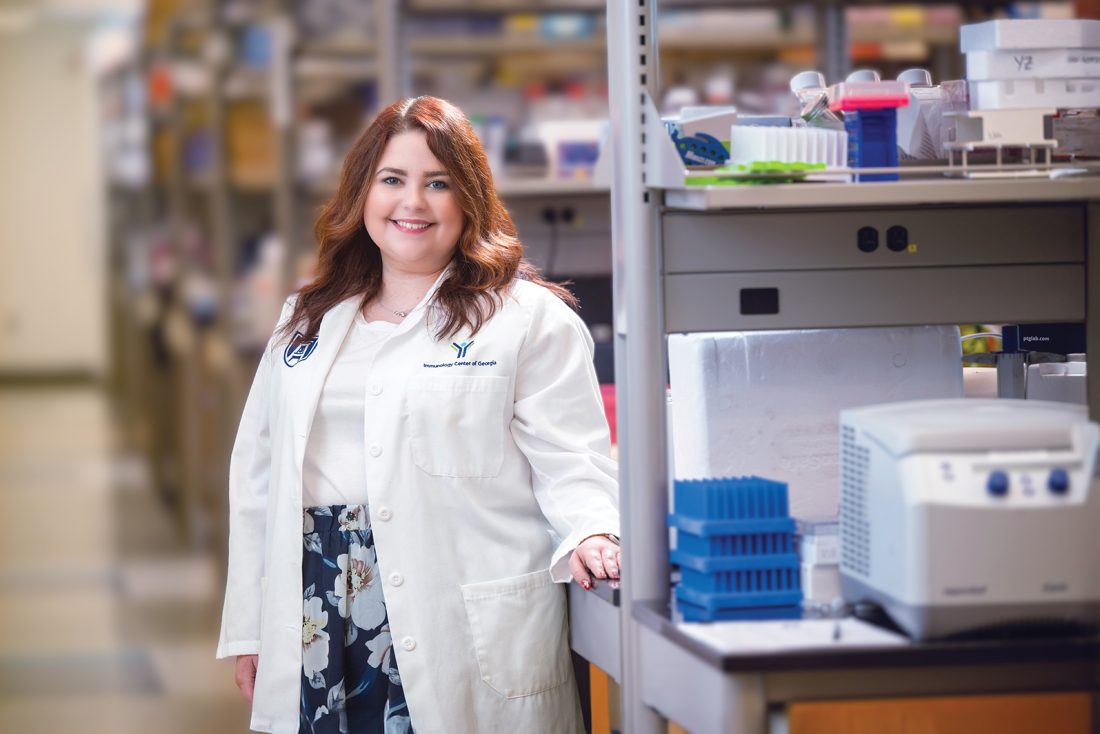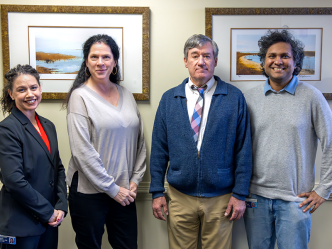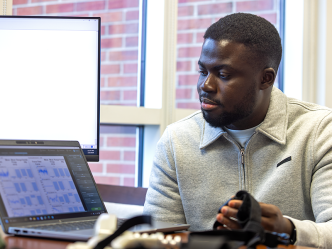A researcher at Augusta University’s Immunology Center of Georgia has been awarded the center’s first American Heart Association Postdoctoral Fellowship.
The grant provides Sabrina Robichaud, PhD, with resources that will support her innovative research into the link between cancer and cardiovascular disease, an area of growing interest as scientists explore the immune system’s role in both conditions.
Augusta University is no stranger to AHA research grants, leading the state with $49.8 million in funding across more than 300 awards.
IMMCG, established in 2022 as part of the Medical College of Georgia at Augusta University, joins other top research centers like the Georgia Cancer Center and the Vascular Biology Center, which has a noteworthy history of AHA-supported research.
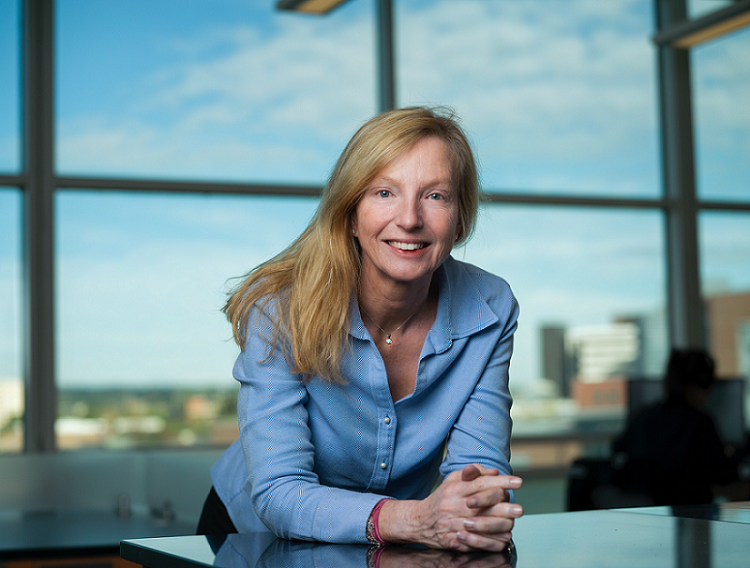
“Bringing together expertise in immunology, cancer and cardiovascular biology allows us to tackle some of the most pressing health challenges facing our state,” said IMMCG co-director Catherine “Lynn” Hedrick, PhD, who serves as Robichaud’s mentor.
“The immune system plays a major role in cardiovascular disease, yet many treatments focus on managing symptoms rather than addressing underlying immune dysfunction. By combining our strengths, MCG can develop better therapies that prevent disease progression and improve long-term patient outcomes.”
The AHA fellowship is designed to enhance the training of early-career researchers who are not yet independent investigators. The program encourages bold ideas and risk-taking, even when preliminary data is limited, to advance scientific discovery and professional growth.
“This fellowship is a tremendous honor,” said Robichaud. “Coming from Canada, it’s incredibly gratifying to see my work recognized and funded here in the U.S.
“Writing this grant was a challenging yet rewarding process, and it’s exciting to see how my expertise and Dr. Hedrick’s mentorship have come together to shape a meaningful project,” she continued. “Augusta University and the Vascular Biology Center have a long and successful history of securing AHA awards, and I’m proud to contribute to that legacy as we advance research at the intersection of immunology and cardiovascular disease.”
Robichaud’s research focuses on the interplay between cancer and atherosclerosis, a leading cause of heart disease. Studies have shown that cancer survivors are more likely to die from heart disease than from secondary cancers, yet the mechanisms underlying this link remain unclear.
Her work aims to uncover how cancer promotes atherosclerosis, with the goal of better identifying patients at higher risk and ultimately improving preventative care.
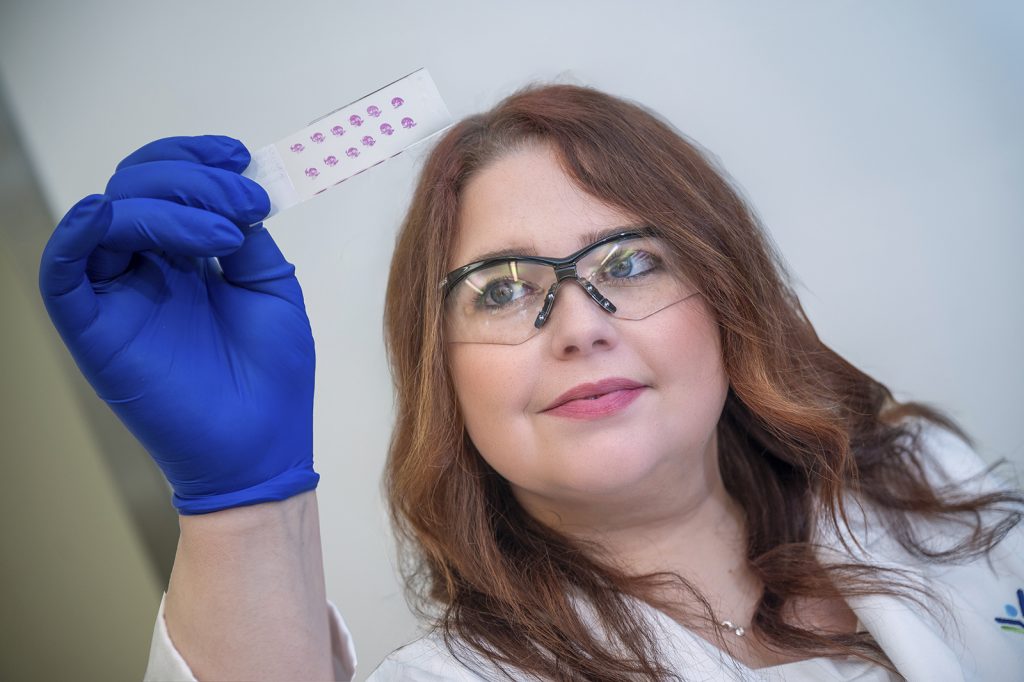
“We know that cancer and atherosclerosis share molecular mechanisms and comorbidities, but how these processes interact is not well understood,” Robichaud said. “By delving into these connections, we hope to identify new ways to mitigate cardiovascular risks in cancer survivors.”
The research will leverage IMMCG’s cutting-edge resources, including intravital microscopy in collaboration with the lab of co-director Klaus Ley, MD, as well as advanced flow and mass cytometry and high-dimensional assays.
“Having access to these technologies and expertise in-house is a game-changer,” Robichaud said. “Many of these experiments wouldn’t be possible in other settings.”
Along with Robichaud, several graduate students and postdoctoral fellows from throughout MCG and The Graduate School have recently earned fellowships from the AHA.
Predoctoral fellows and mentors:
- Andrew Gregory (Fan Fan, MD, FAHA)
- Adam Jones (Daria Ilatovskaya, PhD, FAHA)
- Rachel Patterson (Jessice Filosa, PhD)
- Josue Zambrano-Carrasco (Huabo Su, PhD)
- Ishara M.G. Menik (Eric Belin de Chantemele, PhD)
- Ryan Schibalski (Daria Ilatovskaya, PhD, FAHA)
- Mitchell Shivers (David Fulton, PhD)
- Amritha Sreekumar (Gabor Csanyi, PhD)
Postdoctoral fellows and mentors:
- Mona Elgazzaz, PhD (Jessica Faulkner, PhD)
- Md. Selim Hossain, PhD (Masuko Ushio-Fukai, PhD)
- Sadikul Islam, PhD (Huabo Su, PhD)
- Yoichi Ono, MD, PhD (Eric Belin de Chantemele, PhD)
Mentorship plays a pivotal role in securing the AHA grant, ensuring that trainees receive expert guidance from established investigators committed to their professional growth. Hedrick praised Robichaud’s ingenuity and dedication to scientific discovery.
“Sabrina’s research is tackling a critical and understudied area in cardiovascular research,” Hedrick said. “Her approach combines rigorous science with creative problem-solving, and this award is a testament to her potential to make a significant impact.”
The AHA fellowship also provides funding for Robichaud to attend conferences, enabling her to share her findings and collaborate with leading scientists in the field.
“This award is not just about funding — it’s also about opening doors to opportunities for collaboration and professional growth,” Robichaud said. “I’m looking forward to contributing to the broader conversation about cancer and heart disease and learning from others in the field.”
Discoveries at Augusta University are changing and improving the lives of people in Georgia and beyond. Your partnership and support are invaluable as we work to expand our impact.
 Augusta University
Augusta University
